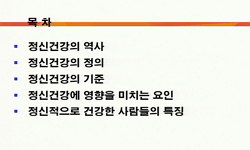For the purpose of better understanding the sociopsychological factors involved in an individual’s coping process towards technochanges, this study examines how the social capital derived from two types of social networks – supportive and informat...
http://chineseinput.net/에서 pinyin(병음)방식으로 중국어를 변환할 수 있습니다.
변환된 중국어를 복사하여 사용하시면 됩니다.
- 中文 을 입력하시려면 zhongwen을 입력하시고 space를누르시면됩니다.
- 北京 을 입력하시려면 beijing을 입력하시고 space를 누르시면 됩니다.
The Effects of Social Capital on Individual Adaptation and Performance: An Alternative Lens of the Coping Theory
한글로보기https://www.riss.kr/link?id=A82344185
- 저자
- 발행기관
- 학술지명
- 권호사항
-
발행연도
2010
-
작성언어
English
- 주제어
-
자료형태
학술저널
- 발행기관 URL
-
수록면
542-568(27쪽)
- 제공처
-
0
상세조회 -
0
다운로드
부가정보
다국어 초록 (Multilingual Abstract)
For the purpose of better understanding the sociopsychological factors involved in an individual’s coping process towards technochanges, this study examines how the social capital derived from two types of social networks – supportive and informational – influences individual adaptation to the new ICT and its related performance. Based on the social network theory and the coping theory, we establish a research model that combines social network variables with psychometric ones. A total of 85 responses are analyzed to test the proposed model and its hypotheses using PLS and UCINET. The results show that the coping effort mechanism of individuals can be explained in terms of social networks. Specifically, supportive network position significantly predicts self-efficacy that explains emotion-focused coping mechanism, while informational network position significantly influences absorptive capacity that accounts for problem-focused coping mechanism. We conclude the paper by discussing theoretical and practical implications for the research findings in terms of social networks and technochanges.
목차 (Table of Contents)
- Abstract
- 1. Introduction
- 2. Theoretical Background
- 2.1. Social Network Theory
- 2.2. Coping Theory
- Abstract
- 1. Introduction
- 2. Theoretical Background
- 2.1. Social Network Theory
- 2.2. Coping Theory
- 3. Research Model and Hypothesis Development
- 3. Research Methodology
- 3.1. Sample and Data Collection Procedure
- 3.2. Measurement
- 4. Analysis and Results
- 4.1. Analysis Method
- 4.2. Measurement Model
- 4.3. Structural Model
- 5. Implications and Limitations
- 6. Conclusion
- References
- Appendix A.
- Appendix B.
동일학술지(권/호) 다른 논문
-
Smart Phone: DisruptivSmart Disruptive Technology to Teaching and Learning – UNIST Case
- 한국경영정보학회
- 임진혁
- 2010
-
- 한국경영정보학회
- 조남재
- 2010
-
- 한국경영정보학회
- Namho Chung
- 2010
-
The Impact of Open Platform to Social Network Adoption: The Case of “Facebook vs. Myspace”
- 한국경영정보학회
- Gwangjae Jung
- 2010




 eArticle
eArticle






